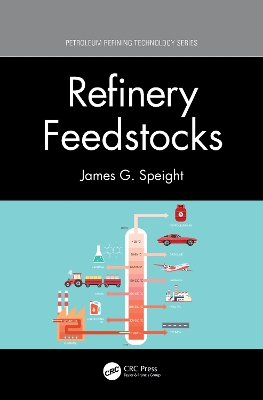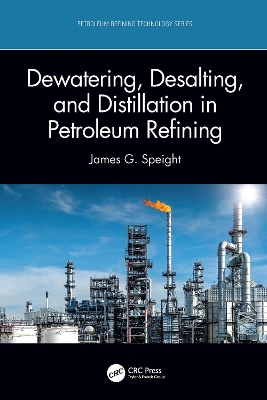Petroleum Refining Technology
2 total works
Over the last several decades, the petroleum industry has experienced significant changes in resource availability, petro-politics, and technological advancements dictated by the changing quality of refinery feedstocks. However, the dependence on fossil fuels as the primary energy source has remained unchanged.
Refinery Feedstocks addresses the problems of changing feedstock availability and properties; the refining process; and solids deposition during refining. This book will take the reader through the various steps that are necessary for crude oil evaluation and refining including the potential for the use of coal liquids, shale oil, and non-fossil fuel materials (biomass) as refinery feedstocks.
Other features:
- Describes the various types of crude oil and includes a discussion of extra heavy oil and tar sand bitumen
- Includes basic properties and specifications of crude oil and the significance in refinery operations
This book is a handy reference for engineers, scientists, and students who want an update on crude oil refining and on the direction the industry must take to assure the refinability of various feedstocks and the efficiency of the refining processes in the next fifty years. Non-technical readers, with help from the extensive glossary, will also benefit from reading this book.
Dewatering, Desalting, and Distillation in Petroleum Refining
by James G. Speight
This book presents a detailed and practical description of the various processes-dewatering, desalting, and distillation that prepare refinery feedstocks for the different conversion processes they will undergo. Relevant process data is provided, and process operations are fully described. This accessible guide is written for managers, professionals and technicians as well as graduate students transitioning into the refining industry.
Key Features:
- Describes feedstock evaluation and the effects of elemental, chemical and fractional composition.
- Details the equipment and components and possible impacts due to composition.
- Explores the process options and parameters involved in dewatering, desalting and distillation.
- Considers next generation processes and developments.

